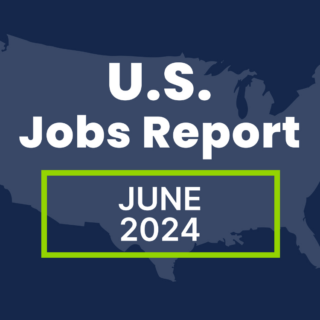A number of new laws in California are set to take effect in 2020. Employers in the state should ensure they are compliant by the start of the new year. In this article, we will cover three of the biggest changes.
AB5 and the “ABC Test”
In September, California signed Assembly Bill No. 5 into law, impacting the gig economy. The law codifies the 2018 California Supreme Court decision in Dynamex Operations West, Inc. v. Superior Court of Los Angeles.
Because of the previous court decision, the provisions of AB5 were already law in California, but the new law formally ensures the test from the decision applies across the state.
The ABC test includes the following criteria to determine who may be classified as an independent contractor in cases involving minimum wage and overtime payments:
- (A) “that the worker is free from the control and direction of the hirer in connection with the performance of the work, both under the contract for the performance of such work and in fact;
- (B) that the worker performs work that is outside the usual course of the hiring entity’s business; and
- (C) that the worker is customarily engaged in an independently established trade, occupation, or business of the same nature as the work performed for the hiring entity.”
If the worker does not meet all three criteria of the ABC test, then that worker is presumed to be an employee.
The California Consumer Privacy Act of 2018
The California Consumer Privacy Act of 2018 (CCPA) is one of the toughest data privacy laws in the U.S. It takes effect in January 2020.
The CCPA applies to most companies that collect the data of Californians, and it expands the definition of what is considered personal information, including behavioral and profiling data and professional and personal background data.
Under the new law, consumers in California are guaranteed the following rights:
- “To know what personal information is being collected about them”
- “To know whether their personal information is sold or disclosed and to whom”
- “To say no to the sale of personal information”
- “To access their personal information”
- “To equal service and price, even if they exercise their privacy rights”
The law requires any business that collects a California consumer’s personal information to disclose the categories and specific pieces of personal information collected and the purposes for which the information will be used, if the person requests.
If a person requests their information, the business must provide access to it in a format that allows the data to be transmitted to another entity within 45 days. A person may also opt-out of the sale of any of their information.
Businesses must also delete a consumer’s personal information if that person requests, unless the information is necessary for the business to complete a transaction, detect security incidents or protect against fraud, repair errors, protect free speech, engage in research, or comply with other California laws.
On October 11, 2019, California Gov. Gavin Newsom signed seven bills into law that augment and bolster the CCPA. The amendments provide some clarity and a partial but mostly temporary reprieve for those businesses that must comply with it. The most notable is AB 25, which creates a one-year exemption for employee data, meaning that the CCPA doesn’t apply to personal info collected from workers, job applicants or contractors. The California legislature will revisit this issue next year.
Sexual Harassment Training Requirements
In 2018, California signed into law SB 1342, which required employers with 50 or more employees to provide at least two hours of prescribed training and education regarding sexual harassment, abusive conduct, and harassment based upon gender by January 2020. In 2019, SB 778 delayed most of those requirements until 2021.
In September 2018, California signed into law SB 1343 which required employers to provide at least two hours of sexual harassment training and education to supervisory employees, and one hour of training and education to non-supervisory employees. Under SB 1343, the training was to be completed by January 1, 2020, and within six months of the assumption of such supervisory/non-supervisory position. In August 2019, SB 778 was passed which delayed most of the requirements under SB 1343 to January 1, 2021. Employers now have more time to satisfy SB 1343 training and education requirements. Additionally, employers are required to provide the training to California employees once every two years.
On October 11, 2019 Gov. Newsom also signed SB 530, which extends to January 1, 2021, the deadline for employers to begin providing the sexual harassment training to seasonal and temporary workers hired to work for less than 6 months.
All other employees are required to obtain that training by the end of 2020.
Compliance Corner is a feature from PeopleScout. Once a month, we’ll be featuring a compliance issue that’s in the news or on our minds. Understanding the patchwork of labor laws across the world is complicated, but it’s part of what we do best. If you have questions on the compliance issue discussed in this post, please reach out to your PeopleScout account team or contact us at marketing@peoplescout.com.



